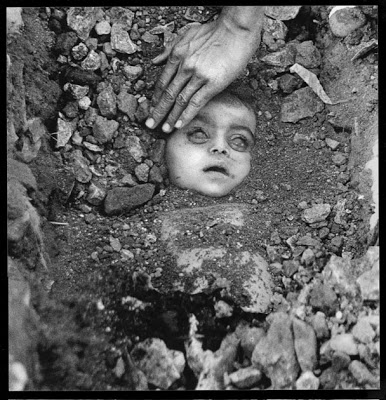“Mothers didn’t know their children had died, children didn’t know their mothers had died and men didn’t know their whole families had died” Ahmed Khan, Bhopal resident
1984 was the year of Carl Lewis, Prince & Michael Jackson. But it was also the year the worst chemical disaster in history took place. A mix of human error and corporate greed resulted into a 40 tons gas leak from a pesticide plant at the site of a chemical factory in Bhopal, India. The dense cloud of gas spread quickly over the city. People were suffocating, others went into convulsion before dropping dead in the streets. “Women lost their unborn children as they ran, their wombs spontaneously opening in bloody abortions” as a witness recalls. More than 3,500 people died immediately and thousands more in the aftermath.
American-owned Union Carbide chemical factory in Bhopal was built in early 1970´s and sought to make huge profit of Indian farmers. When the pesticide factory failed to meet its expectations, it ceased active production in 1981. The impact of a disaster as one that later occurred was unknown but one could imagine, and yet the company did not take the necessary measures. The factory was a time bomb laying next to the residents of the central Indian city of Bhopal. Most of the poor residents did not know about the company’s existence of what could be their fate. In the night of December 2nd, 1984, when the disaster took place, all the safety systems were inoperative.
Warren Anderson, Union Carbide’s CEO at the time of the disaster was charged with manslaughter but fled the country and enjoyed protection in the United States. Imagine if it was US citizens whose ordinary lives were cut short what would have been done and said. After the oil spill in the Gulf of Mexico BP was fined $20 billion by the US government. The people responsible for this disaster remains unpunished. Neither Anderson nor Union Carbide have faced charges running against them in India.
Believe it or not, 27 years after the disaster took place the site is yet to be cleaned. Poisonous chemicals are still on the site. The waters are still polluted and due to poverty people still drink from it. Children in the era are more likely to be born with side effects, then children of the rest of the country. The government’s inaction only causes frustration. Survivors from the affected communities are feeling hopeless, they feel like nothing is in their control. People can hardly make ends meet. The handful of people who can manage to save some little money are saving it for medicine.
There are already many people doing whatever they can to bring this horror to the public eye and hopefully justice to the affected communities. Go to Bhopal.org for detailed information about the tragic and what you can do to help.

